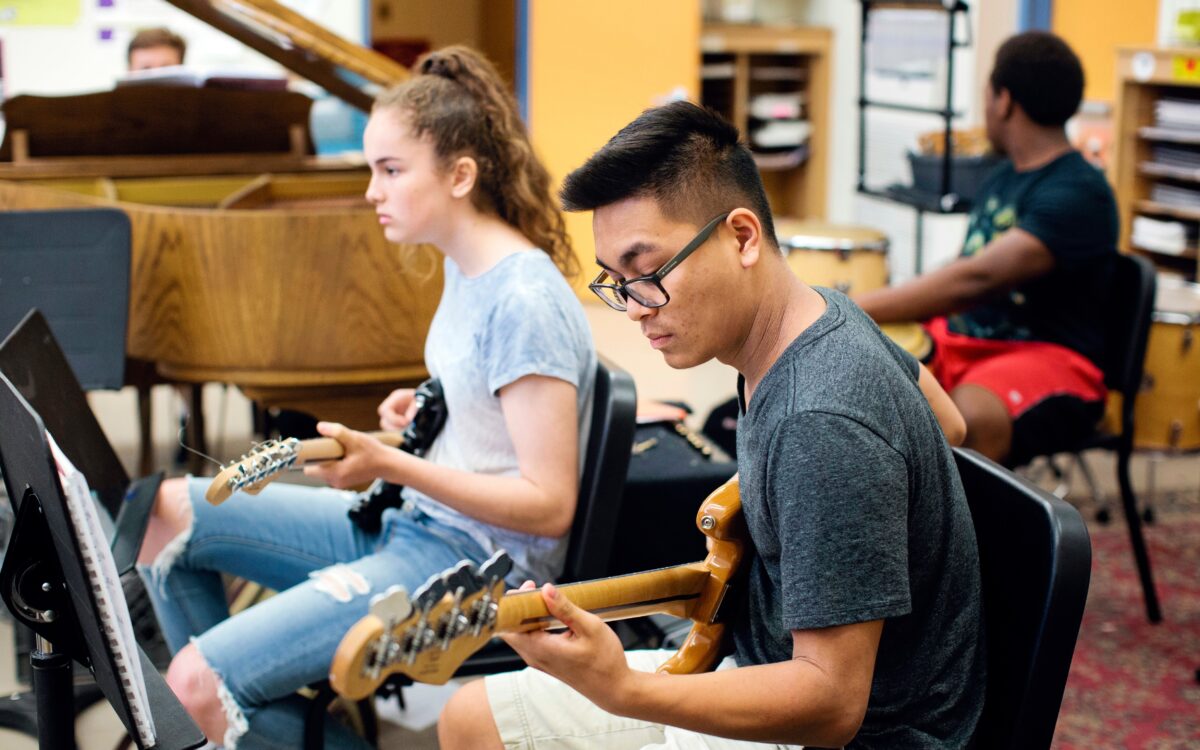Music education can boost the emotional well-being of adolescents, according to research by the University of Southern California.
Researchers surveyed 120 students from 52 Los Angeles Unified School District middle schools online to determine the impact of music on positive youth development.
They found that students who started music education before age 8 were more hopeful about the future and that students who received musical training scored higher in areas of positive youth development, a measure of the strengths of adolescents and their potential to contribute to society developed by scholars from Tufts University in Massachusetts.
“We know that the pandemic has taken a toll on student mental health. The many narratives of learning loss that have emerged since the start of the pandemic paint a grim picture of what some call a lost generation,” said Beatriz Ilari, an associate professor of music education at the USC Thornton School of Music and an author of the study. “Music might be an activity to help students develop skills and competencies, work out their emotions, engage in identity work and strengthen connections to the school and community.”
The study on the impact of music education was published in the journal Frontiers of Psychology.
